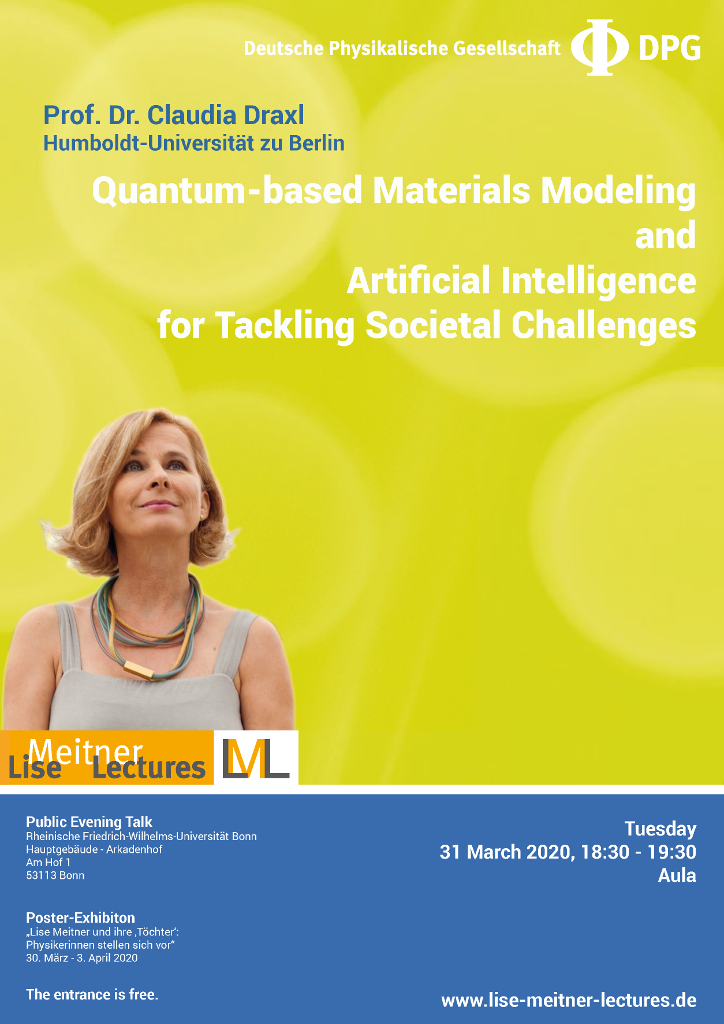Modellierung neuer Materialien und Künstliche Intelligenz zur Bewältigung gesellschaftlicher Herausforderungen (abgesagt)
Lise-Meitner-Lectures 2020 im Rahmen der DPG-Jahrestagung in Bonn
- Date:
- Tu, 31.03.2020 18:30 – Tu, 31.03.2020 19:30
- Speaker:
- Prof. Dr. Claudia Draxl, Physics Department and IRIS Adlershof, Humboldt-Universität zu Berlin and Fritz-Haber-Institut der Max-Planck-Gesellschaft Berlin
- Address:
- Rheinische Friedrich-Wilhelms-Universität Bonn
Hauptgebäude - Arkadenhof, Am Hof 1, 53113 Bonn, Deutschland
Aula
- Language:
- Deutsch
- External Link:
- http://www.bonn20.dpg-tagungen.de
Description

Materials science has crucial impact on the prosperity and lifestyle of our society, since essentially every new commercial product employs improved or even novel materials. This concerns the energy sector, transportation, information technology, medical devices, and more. The number of possible materials is practically infinite, and the variety of different mechanisms controlling their properties and functions is enormous.
What is the role of theory in understanding and shaping the intricate interplay of different interactions? This talk will provide a guided tour through the diversity of computational materials science, showing how modern many-body concepts and computational approaches can capture various effects, taking place on the electronic and atomistic scale, and can predict new materials with tailored properties. Such “computer experiments” - known as the third paradigm of materials research - are now producing enormous amounts of data which, in turn, form a precious raw material of the 21st century. That way, data-driven materials science is realizing a fourth paradigm of our research field. I will discuss how research data can be exploited to create much more knowledge beyond what is typically published in journals and what challenges we are facing when including experimental data in this type of research.